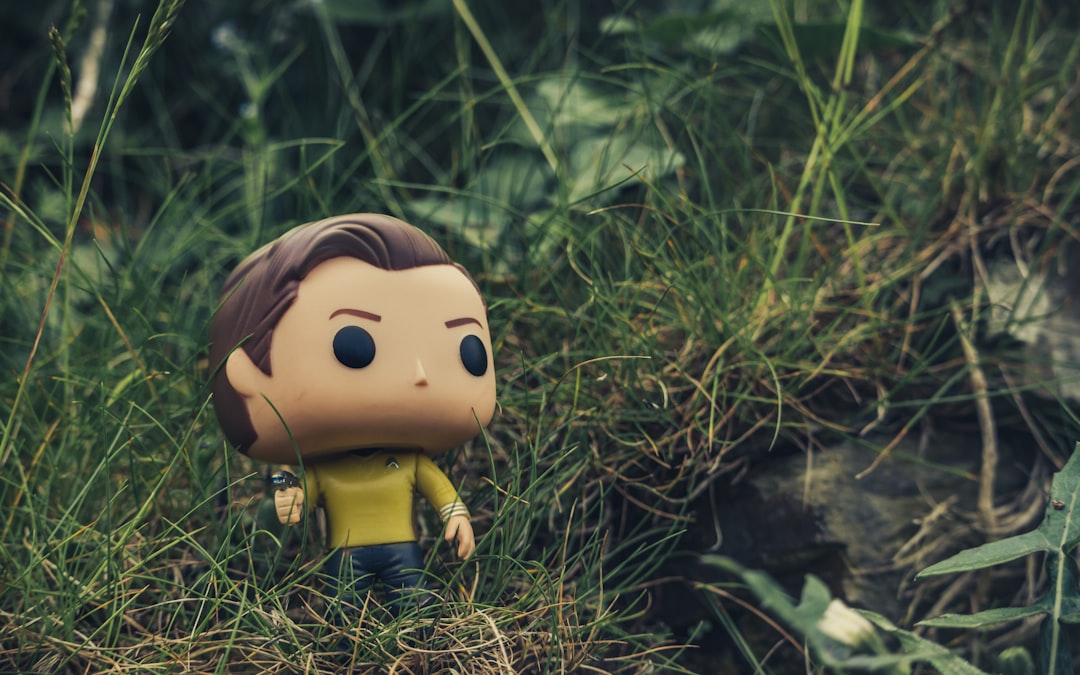I’ve spent the last few weeks desperately trying to catch up on Star Trek: Strange New Worlds before the second season drops next month. As of this writing, I have one episode left.
But the penultimate episode—“All Those Who Wander”—has left me in a reflective mood.
I’ll go ahead and say it here: Pretty big spoilers ahead for anyone like me who hasn’t yet finished season one.
Here’s a Star Trek fact: If you find yourself on an away mission to an unknown planet bristling with danger and you’re not a series regular, there’s a good chance you’re not making it back to the ship.
“Who’d you say was going to the planet? Captain Pike, Mr. Spock, Dr. M’Benga and me? Red Shirt #7? Oh shit.”
The writers are never kind to unnamed crew members.

And sure, they have names. You can look up their IMDB pages and everything. But you get my meaning. If you just got a name this episode—hell, if you just showed up this episode—things are already looking bad for you.
And so, yeah, in “All Those Who Wander,” we meet and lose a couple of crew members. You hate to see it. It was a bloody mess.
But we also lost a pretty cool character, one who has a name, a title, a backstory—the works. It was unexpected.
“It is better to leave than to be the one left behind,” Chief Engineer Hemmer says. (Note the title and the name.) He’s counseling Ensign Uhura who is second-guessing her life decisions, her future in Starfleet.
But as Hemmer deftly notes, Uhura isn’t really afraid of giving her life to Starfleet. She’s afraid of giving herself to others who might unexpectedly be torn from her.
Better to leave than be left. It’s the difference between having all the control and having none.
It’s not the first time Hemmer has given Uhura life advice. He’s got this no-nonsense way about him, like what he says carries just a bit more weight, a bit more insight.
Like its tinged with future knowing.
And, seeing as this is a television show rife with all those storytelling tricks like foreshadowing and callbacks, well, Hemmer’s advice does carry a bit of future knowing.
“Of course the people you care about will cause you pain,” he says. “It will hurt. But the love it yields will far outweigh the sorrow.”
So, a few things: Great insight, Hemmer. You’re really nailing it. Also—you’re 100% not making it out of this episode.
But he’s got a name!
The foreshadowing, perhaps, was a bit too heavy. Hemmer does indeed sacrifice himself for the crew—the people he loves. He is the one who chooses to leave—albeit, under tragic circumstances—while Uhura and the others remain, heartbroken.
And his death is necessary to Uhura’s story. We saw it coming by his words. We have a sense of where things are going as a result: Uhura’s journey, what will weigh on her, what will motivate her.
The storytelling in Strange New Worlds is excellent.
But what I’m left reflecting upon is this: Is the same sort of foreshadowing happening all around me—around us—everyday of our lives? Do we pick up on patterns and potential and possibilities in the conversations we have, in the experiences we muddle through? Or, are we only able to see the meaning by way of the rearview mirror?
Hemmer’s brief insights were poignant. They laid clear groundwork for the story as it unfolded, painful as the results were. But his words gave hope, a sad little grin that seemed to say: “We know where this is head, the sorrow and struggle, and that’s okay. It’s connected; it means something. We’re part of something—and we’re part of it together.”
How does foreshadowing translate in the hustle of our everyday living? I think, maybe, it simply means we really sit with our seemingly mundane experiences. We reverence even trivial conversations, never knowing what might matter in the moment that follows. We hold these scraps of our lives and realize that each pulses with this potential to explode into meaning somewhere down the path.
There’s something sacred in these scraps. Something hopeful and heartbreaking all at once.
So, don’t just take time to reflect back on those moments in your day—though that’s essential spiritual work. Take time to sink into the present moments, conversations, the faces in front of you, the chirping birds and freshly cut grass and the far-off sound of a siren.
Is it all foreshadowing? Is it all pointing to something, somewhere, for you?
You’re more than a random red shirted crewmember destined to a meaningless death on some far-off planet. You’ve got a name, a backstory. Rejoice in it.
There’s more Star Trek where that came from:


